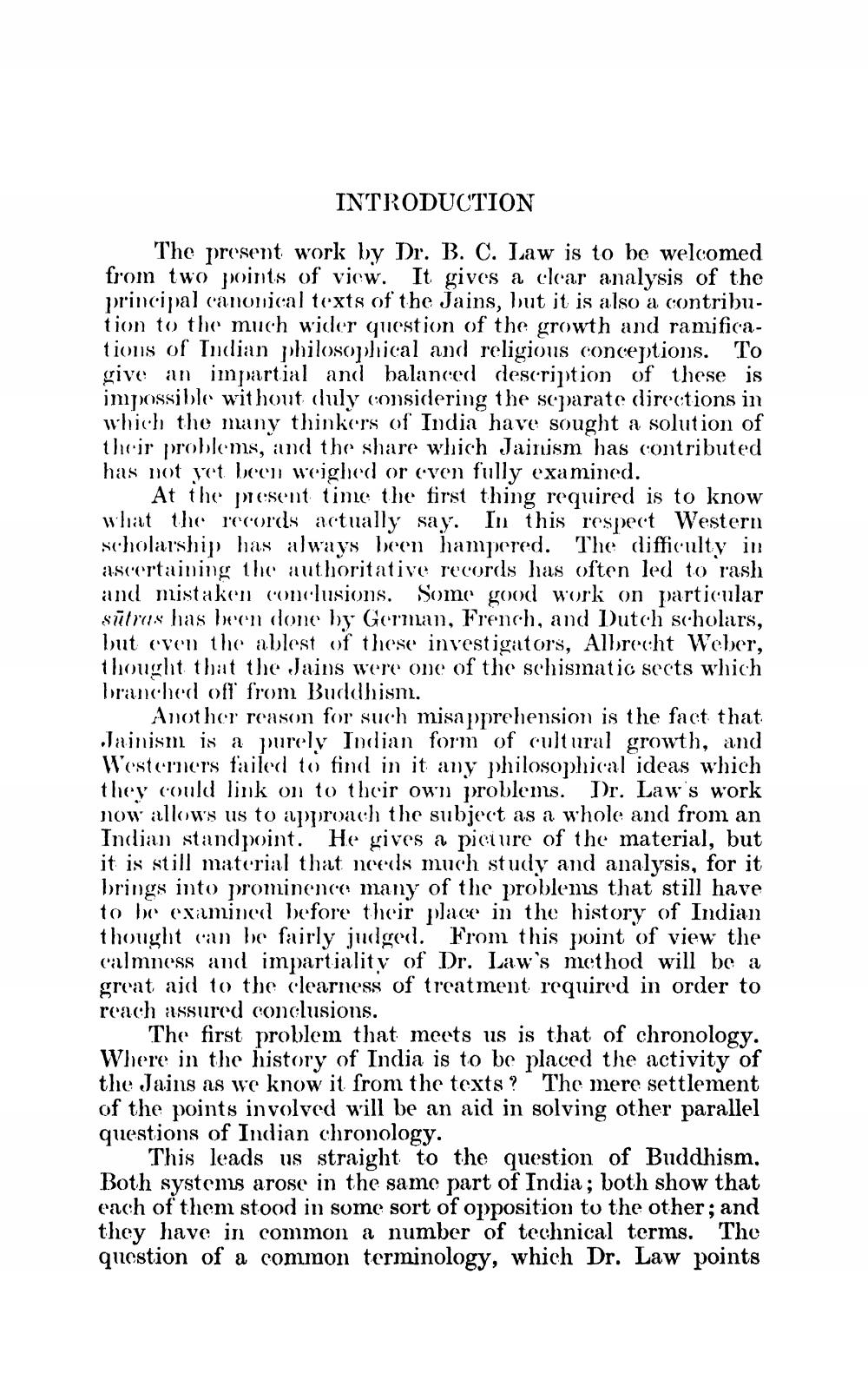________________
INTRODUCTION
The present work by Dr. B. C. Law is to be welcomed from two points of view. It gives a clear analysis of the principal canonical texts of the Jains, but it is also a contribution to the much wider question of the growth and ramificatious of Iudian philosophical and religious conceptions. To give an impartial and balanced description of these is impossible without duly considering the separate directions in which the many thinkers of India have sought a solution of toir problems, and the share which Jainism has contributed has not yet been weighed or even fully examined.
At the present time the first thing required is to know what the records actually say. In this respect Western Scholarship has always been hampered. The difficulty in ascertaining the authoritative records has often led to rash and mistaken conclusions. Some good work on particular Sūtrus has been done by German, French, and Dutch scholars, but even the ablest of these investigators, Albrecht Weber, thought that the Jains were one of the schismatic sects which branched off from Buddhism.
Another reason for such misapprehension is the fact that Jainism is a purely Indian form of cultural growth, and Westerners failed to find in it any philosophical ideas which they could link on to their own problems. Dr. Law's work now allows us to approach the subject as a whole and from an Indian standpoint. He gives a picture of the material, but it is still material that needs much study and analysis, for it brings into prominence many of the problems that still have to be examined before their place in the history of Indian thought can be fairly judged. From this point of view the calmness and impartiality of Dr. Law's method will be a great aid to the clearness of treatment required in order to reach assured conclusions.
The first problem that meets us is that of chronology. Where in the history of India is to be placed the activity of the Jains as we know it from the texts? The mere settlement of the points involved will be an aid in solving other parallel questions of Indian chronology.
This leads us straight to the question of Buddhism. Both systems arose in the same part of India ; both show that each of them stood in some sort of opposition to the other; and they have in common a number of technical terms. The question of a common terminology, which Dr. Law points




